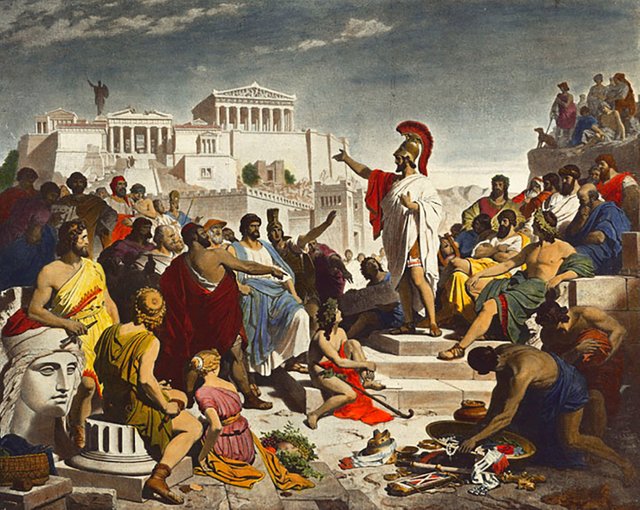
Historians argue among themselves whether Thucydides is a moralizing philosopher or, in a common phrase, “the first scientific historian.” What is radical about him, and gives him his unerring clear-sightedness, is that he is both. He understands morals, not as a set of arbitrary rules imposed or wished upon reality, but part of the fabric of reality itself, in the same way that Greek philosophy had begun to understand physical laws as inseparable from reality. Thucydides came to the same insight that Ludwig Wittgenstein recorded centuries later when he wrote that ethics “must be a condition of the world like logic.” In the two years since the 2016 US election, it seems ever more clear that Thucydides is the greatest historian not only of empire but also of contemporary politics.
Everyone who reads Thucydides knows him as the most profound and convincing historian of empire, not only in his own age but also in his explicit and implicit predictions of later ages. One of his great themes is Athenian exceptionalism and the moral and military failures that inevitably issued from it. Early in his book, he reconstructs or invents the funeral oration spoken by the Athenian leader Pericles to commemorate those who died in the first year of the Peloponnesian War, with its brilliantly inspiring praise of Athenian democracy in its full flower, prospering and triumphant through its voluntary self-control, its mutual responsibility, its reverence for the law.
Then, three sentences after the end of the oration, Thucydides, without making a point of the devastatingly subversive turn that his history is about to take, refutes almost everything Pericles said, everything that was self-deceiving and hollow. In the summer after the oration, Thucydides reports, Athens was afflicted by the plague, and its democracy collapsed into “a state of unprecedented lawlessness.” Those who survived cared only for “the pleasure of the moment and everything that might conceivably contribute to that pleasure,” and “no fear of god or law of man had a restraining influence.”
Source of shared Link

Source
Copying/Pasting full or partial texts without adding anything original is frowned upon by the community. Repeated copy/paste posts could be considered spam. Spam is discouraged by the community, and may result in action from the cheetah bot.
More information and tips on sharing content.
If you believe this comment is in error, please contact us in #disputes on Discord
Downvoting a post can decrease pending rewards and make it less visible. Common reasons:
Submit
Sounds a lot like right now. Yikes!
Downvoting a post can decrease pending rewards and make it less visible. Common reasons:
Submit
a smart guy this Thucydides
Downvoting a post can decrease pending rewards and make it less visible. Common reasons:
Submit
Funny how history has a way of repeating itself.
Downvoting a post can decrease pending rewards and make it less visible. Common reasons:
Submit
Hi @preparedwombat!
Your post was upvoted by @steem-ua, new Steem dApp, using UserAuthority for algorithmic post curation!
Your UA account score is currently 4.701 which ranks you at #1514 across all Steem accounts.
Your rank has improved 7 places in the last three days (old rank 1521).
In our last Algorithmic Curation Round, consisting of 270 contributions, your post is ranked at #192.
Evaluation of your UA score:
Feel free to join our @steem-ua Discord server
Downvoting a post can decrease pending rewards and make it less visible. Common reasons:
Submit